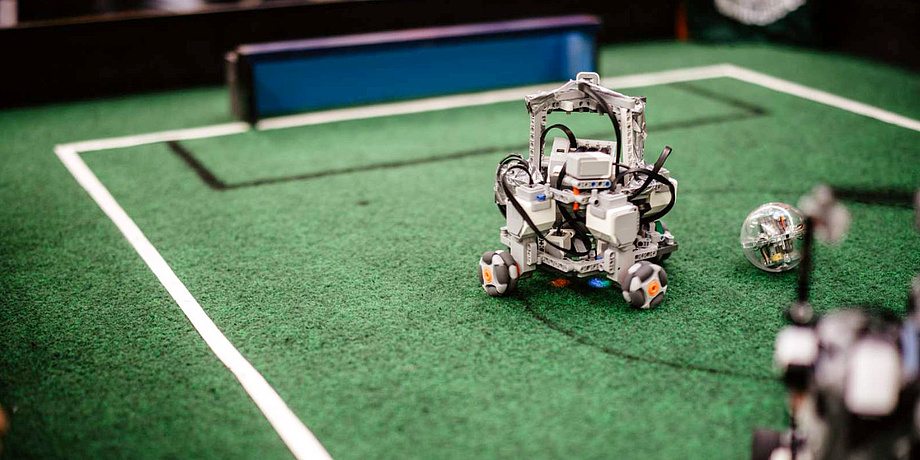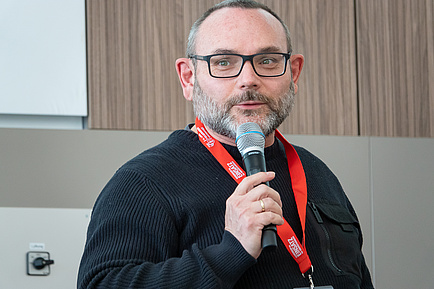News+Stories: Artificial intelligence seems to be omnipresent, at least since Chat-GPT. Does this also affect events like the RoboCup?
Gerald Steinbauer-Wagner: We are currently experiencing a hype around artificial intelligence. Generative AI such as Chat-GPT is indeed a milestone and is already working very well. But all of this is happening purely in the virtual world! In the virtual world, you always have access to all the information you need. However, things get really exciting only in the real world! When I am confronted with unpredictable dynamic situations and have to solve them in a team. And that's exactly what RoboCup is all about!
The RoboCup is now a global initiative. How did it originally come about?
Gerald Steinbauer-Wagner: The idea for the RoboCup came about when Deep Blue won against the reigning world chess champion Kasparov. At the time, many people thought that computers were now superior to us humans. But that's not the case. Basically, the concept of chess is quite simple: a programme searches for the best next moves in a game tree. The large number of possible moves gives the computer an advantage over humans. But this has nothing to do with intelligence. At RoboCup, the focus should be on developing intelligent systems. So the founders of RoboCup came up with football as a field of application: robots have to act in a dynamic environment, interacting with other agents and solving a non-trivial task. That was a brilliant idea, because many people are interested in football, which means that many people get interested in robotics and technology in general. Robot football also provides a lot of insights for research. And thirdly, there is no commercial interest behind it: You can't earn money with football-playing robots, you do it purely for fun!
Many young people spend a lot of time in the virtual world. Robotics and the RoboCup on the are a good bridge to the haptic world.
Gerald Steinbauer-Wagner: Yes, and in addition to the hands-on component, there is something else: you have to understand the environment and you have to transfer this understanding of the environment to the computer. However, the environment is ‘uncertain’, i.e. unforeseen things can happen. That's what makes the RoboCup so interesting. And through RoboCupJunior, we want to introduce young people to these issues and get them interested in science and technology in general.
Personally, it's not that important to me that the RoboCup motivates young people to go into a technical profession or study robotics or artificial intelligence. If someone develops a general interest in science through the RoboCup and becomes a marine biologist, for example, then that's also wonderful. The important thing is that young people stay in the education system for a long time and do something useful in it! There are fewer and fewer jobs for people without good educational qualifications. That's why we want to reach as many young people as possible and motivate them to pursue higher education in general.
Do initiatives like the RoboCup also reach young people from underprivileged backgrounds?
Gerald Steinbauer-Wagner: To be honest, we don't reach enough young people from so-called educationally disadvantaged backgrounds. It's mostly schools and young people who are already interested in the subject who take part in the event. More needs to be done to reach other groups as well. But unfortunately we currently have too few resources for this, both in terms of funding and time. We need to join forces and resources more in future.
Teachers are also needed in schools who have the drive to motivate pupils to take part in such extracurricular projects.
Gerald Steinbauer-Wagner: That's why I'm very happy that we continue to offer teacher training programmes at TU Graz. After all, creative and well-trained teachers are irreplaceable as multipliers.


